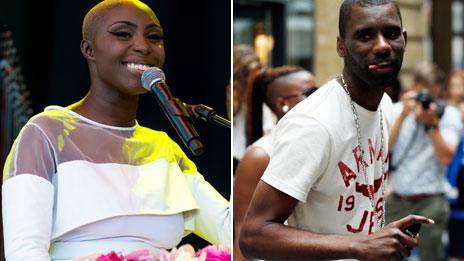Conductor Jules Buckley on Quincy Jones Prom: 'He's a guru'
- Published
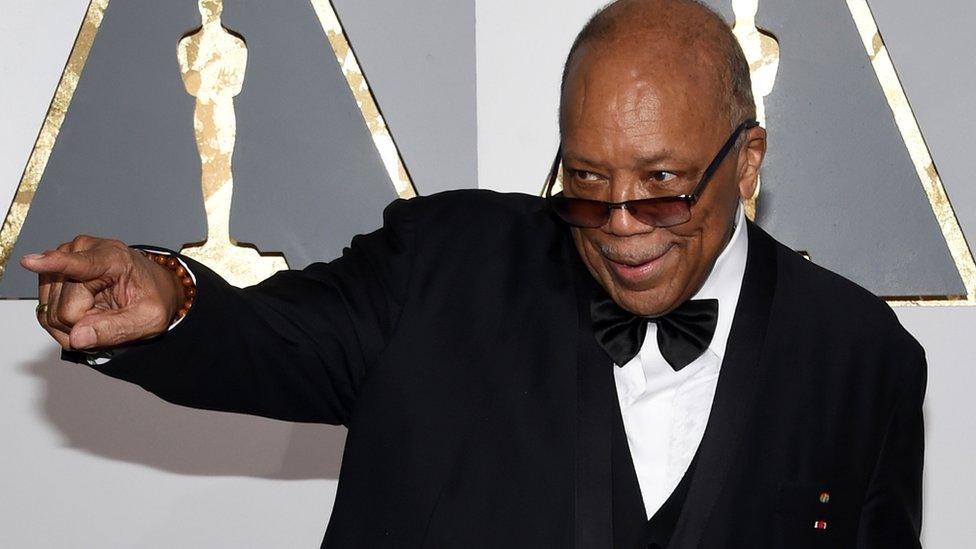
Quincy Jones, now 83, will attend next week's Prom, although he is not expected to perform
In just five days, the Royal Albert Hall will shudder to the sounds of Michael Jackson, as the Proms celebrate legendary pop producer Quincy Jones.
Eight months in the making, the concert will not just cover Thriller and Off The Wall, but Jones's big-band work, jazz compositions and film scores.
And the 27-time Grammy-winner is coming to London to watch the concert.
"Can you write that we're bricking it?" laughs conductor Jules Buckley. "Just absolutely bricking it."
As a child of the 1980s, Buckley first encountered Jones through his work with the King of Pop.
"We had Thriller on in the car when I was three," he says. "And then it was like, 'wow, he's an incredible big-band writer, too? What the hell?'
"He's a guru. He doesn't have an equal. There's no-one that comes close in the jazz and pop world, in terms of being a conductor, composer, arranger, producer, mentor, philanthropist. It's crazy."
The 36-year-old might be under pressure ahead of Monday's Prom, but he has a habit of pulling these things off. In previous years, he conducted the Ibiza Prom and the Urban Prom, dragging dance and grime into the classical realm.
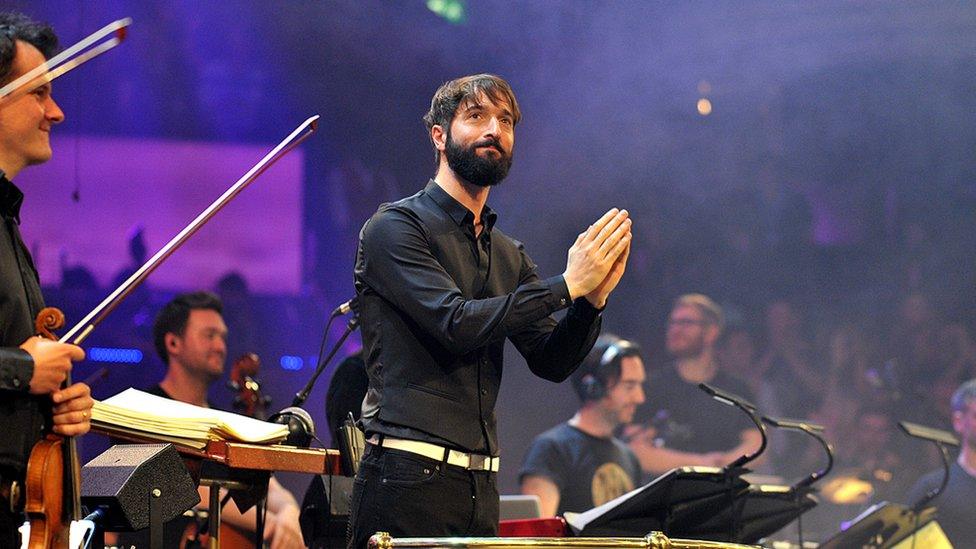
Jules Buckley is one of the most in-demand conductors in pop
Born in Buckinghamshire, Buckley has enjoyed a rapid rise since he co-founded the Heritage Orchestra in 2004, specialising in non-classical repertoire.
He has worked with Arctic Monkeys, Tori Amos, Massive Attack and Dizzee Rascal, and won his first Grammy earlier this year for a collaboration with Brooklyn jazz-funksters Snarky Puppy.
As well the Heritage, he is now chief conductor of the Netherlands-based Metropole Orkest, and has become the go-to guy when the Proms want a slice of street cred.
He talked to BBC News about meeting Quincy Jones, the controversy around the Ibiza Prom, and the importance of magic markers.

When you were asked to conduct the Quincy Jones Prom, was it an instant yes?
...Or was it more like, "can I just go change my trousers and then come back to you?!"
Actually, the truth is we wanted to find an amazing programme for the Proms and I said, "what about Quincy?". I knew it was a long shot but I approached Quincy myself.
Was he aware of the Proms?
I think so. He'd always been looking to have a show in this amazing hall. So the timing was right.
And you've been collaborating with him for the last six months.
That's been major. Just listening to this music and thinking, "oh my God, how do I put a programme together?"
I had to kill a lot of darlings along the way. No matter what we do, there will be a lot of people going, "I can't believe you didn't play that tune, man."
What's the one you already regret cutting?
I think the one that's going to come back and haunt me is Ai No Corrida.
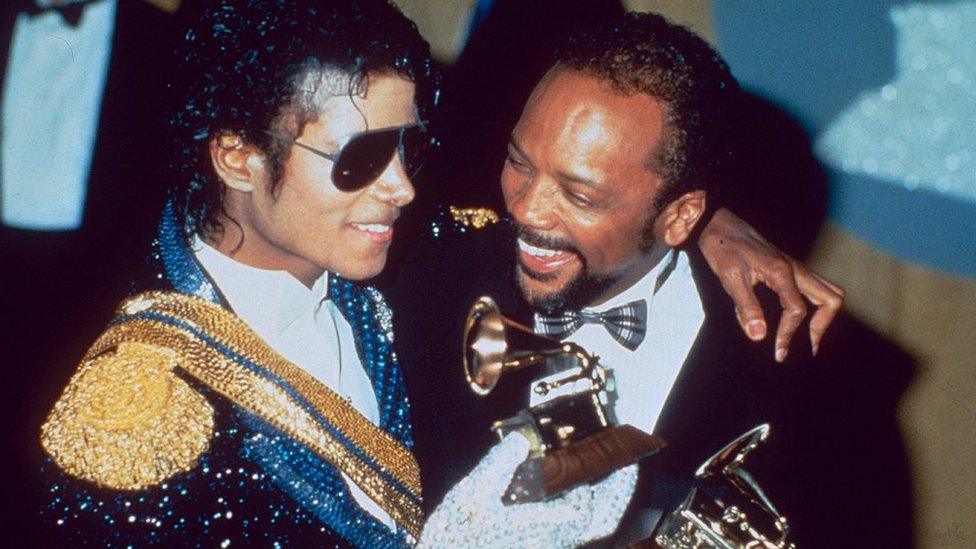
Quincy Jones won his 10th and 11th Grammys in 1984 for producing Michael Jackson's Thriller album
How much of the concert will be devoted to Michael Jackson?
There's three Michael Jackson songs in the programme. One of them, we're really doing it differently, like totally different.
But I wanted to avoid the Michael Jackson tribute thing. I wanted to show off the film score stuff, the big band stuff and the other work he's done. For example, he's just produced an album for this Cuban pianist Alfredo Rodriguez, so I also wanted to include something right from this year.
Did you talk to Quincy about how those classic songs were recorded? There's so much sonic innovation, for instance, in the drum sound on Billie Jean.
I tell you one thing. For Wanna Be Starting Something, Q's office sent me some manuscripts and the "ch-cha-ch-cha" sound that you think is a shaker is actually two bits of sandpaper.
When you read these amazing little details, it's so much fun to put together. But the Jacko stuff is the biggest challenge of the show. Everyone wants to hear those lines.
You just called him "Q". Does that mean you've been inducted to the inner circle?
Well, I haven't ever called him Q to his face yet! I think it's a bit like "sie" and "du" in Germany. So, at first you stick to the formal "sie" and when they offer you the "du", you can say it.
When we hook up in London, I'm going to start with Quincy. Just because I think it's right.
I've noticed that when orchestras play pop and rock, they often strip out the beat. Isn't that missing the point?
It's almost like they're afraid of it, right? They're afraid of moshing out. But the beat and the bass line is the gospel of the music, and you want to try to get that into the bloodstream of your musicians as quickly as possible.
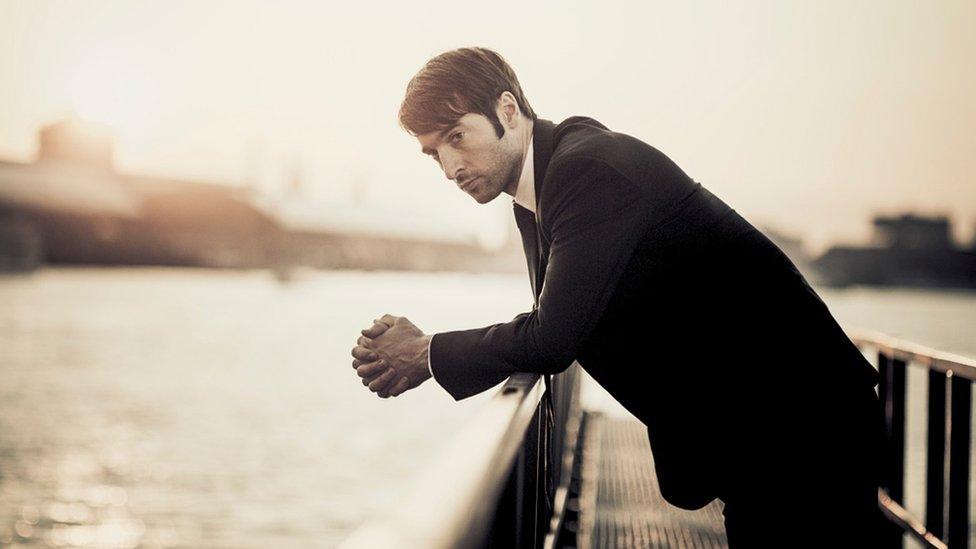
Born in Aylesbury, Buckley studied at the Guildhall School of Music before setting up the Heritage Orchestra
You're also conducting a Prom with jazz saxophonist Kamasi Washington, who's an incredible improvisational talent. How do you prepare an orchestra for the moment they have to abandon the score and follow him?
With Kamasi, his band can go anywhere, so I do one of two things: I have a huge bit of paper and a massive magic marker, and I start writing riffs out on the spot for the strings to play. And the other thing is, I'll write down a bar number and, when we're about to hit that bar, I hold it up and bring them in.
If you're working with an orchestra and, at the beginning of a tune, the soloist wants to vamp a bit longer, then you need to explain in rehearsals a sequence of signs which might mean, "okay, hold this pattern, we're going to loop."
You're doing some of those signs as you speak - clenching a fist, or making a pyramid with your fingers…
Right. You create conductorial safety buttons. For example, some of my friends are jazz composers and they'll number each section in a sequence of music. Number one is what we call the panic button - and if the conductor holds up the "one" it means it's all gone to hell. So he cues the "one" and they play this massive, whopper chord and then they go back to the start!
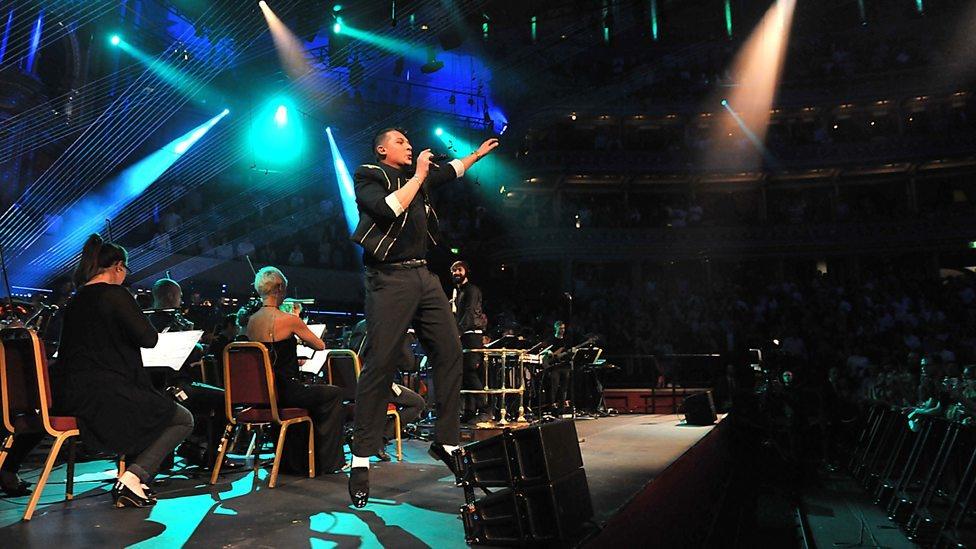
The Ibiza Prom saw dance and rave classics reinterpreted by the Heritage Orchestra, and performed by the likes of Ella Eyre and John Newman (pictured)
There was a lot of negativity in the run-up to last year's Ibiza Prom. What was your experience?
My main memory is that when it was proposed to us, I went to Chris Wheeler, who I run the Heritage Orchestra with, and we had a sit down and a chat and, for a while, we were considering not taking it on. We honestly thought it might bomb.
The response was better than anyone expected. People actually applauded in between the songs, which is almost unheard of at the Proms.
They were roaring. It was like a cathartic thing for many members of the audience. As soon as I started I thought, "ah, we're going to be fine". But before then I was sat backstage like, "flipping hell."
The funny thing is that, when I was a teenager, I wasn't really into that music. I was much more into grunge and heavy metal.
Maybe you could do a grunge Prom next year.
Actually, Eddie Vedder [from Pearl Jam] is top of my list. I know that Eddie Vedder, acoustic with an orchestra could be incredible. But it might take a lot of money.
Is it more important to have these collaborations in a classical music setting, or to take orchestras out to a new audience that doesn't normally experience classical?
I think both are equally important. There's something cool about sticking an orchestra in a club, but it has to be done with care. The sound has to be right.
Generally, I think as many people as possible should see large ensemble music performed at a really high level. And it doesn't really matter what the music is.
The Quincy Jones Prom takes place at the Royal Albert Hall on Monday 22 August. Jules Buckley also conducts the Kamasi Washington Prom on Tuesday 30 August.

Follow us on Twitter @BBCNewsEnts, external, on Instagram at bbcnewsents, external, or email entertainment.news@bbc.co.uk, external.

- Published16 August 2016
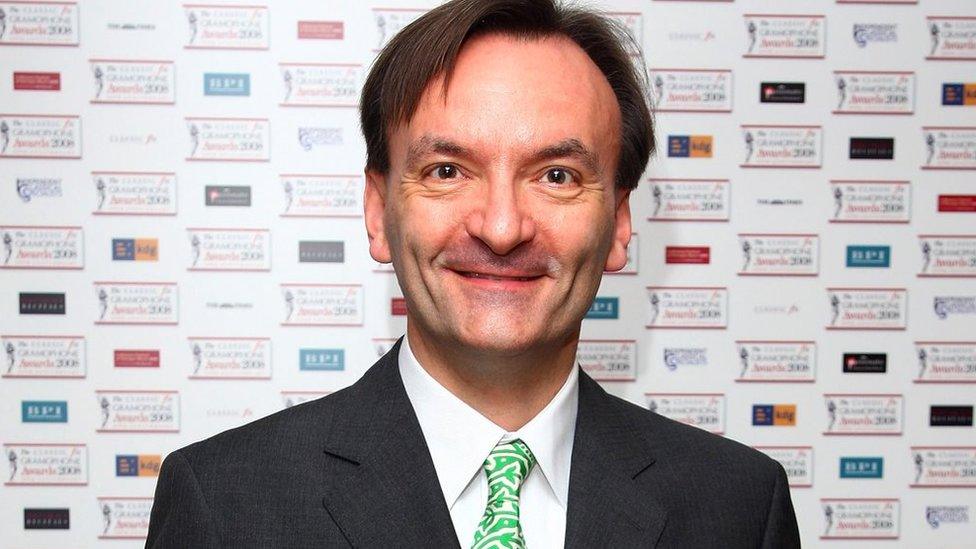
- Published7 July 2015
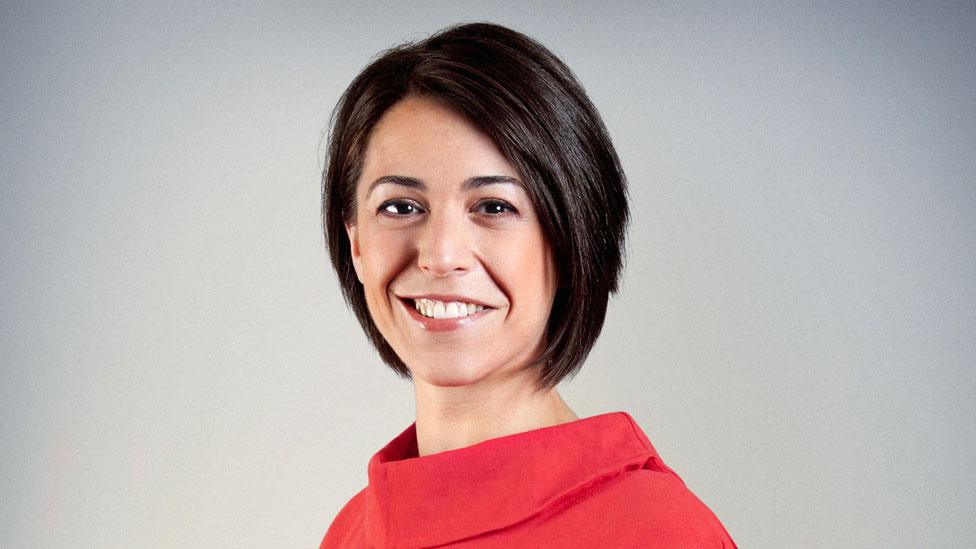
- Published10 August 2013
